Uniqlo Speaks to Gen Z With New Store in London’s Covent Garden
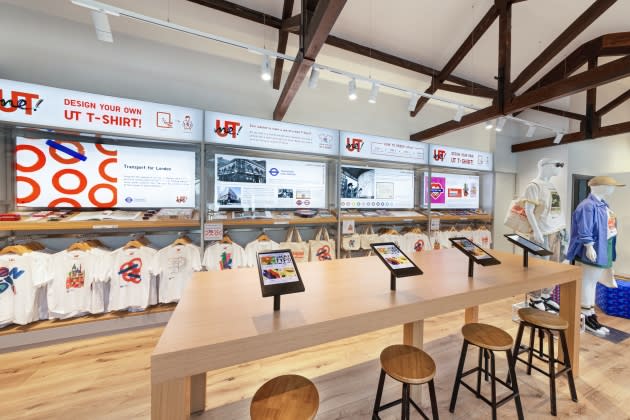
LONDON — Uniqlo is digging deeper into the U.K., opening its second, new-format store in London in the space of a year.
The store, in Covent Garden, has a different personality, and proposition, than its sibling on Regent Street, which opened in April 2022.
More from WWD
At 15,600 square feet over three floors, it’s slightly smaller than the Regent Street unit. It’s geared at a younger and more local audience, with an emphasis on streetwear, accessories and novelty T-shirts with archive prints, and collaboration designs.
It also embraces Covent Garden’s past, and present.
The store, located at 19 to 21 Long Acre, is located in a Victorian-era carriage house, and is Grade II listed, meaning that’s a protected property of historical value. Uniqlo has preserved the original architecture and also created a central atrium with a statement staircase that divides the Uniqlo space from that of its sister brand Theory.
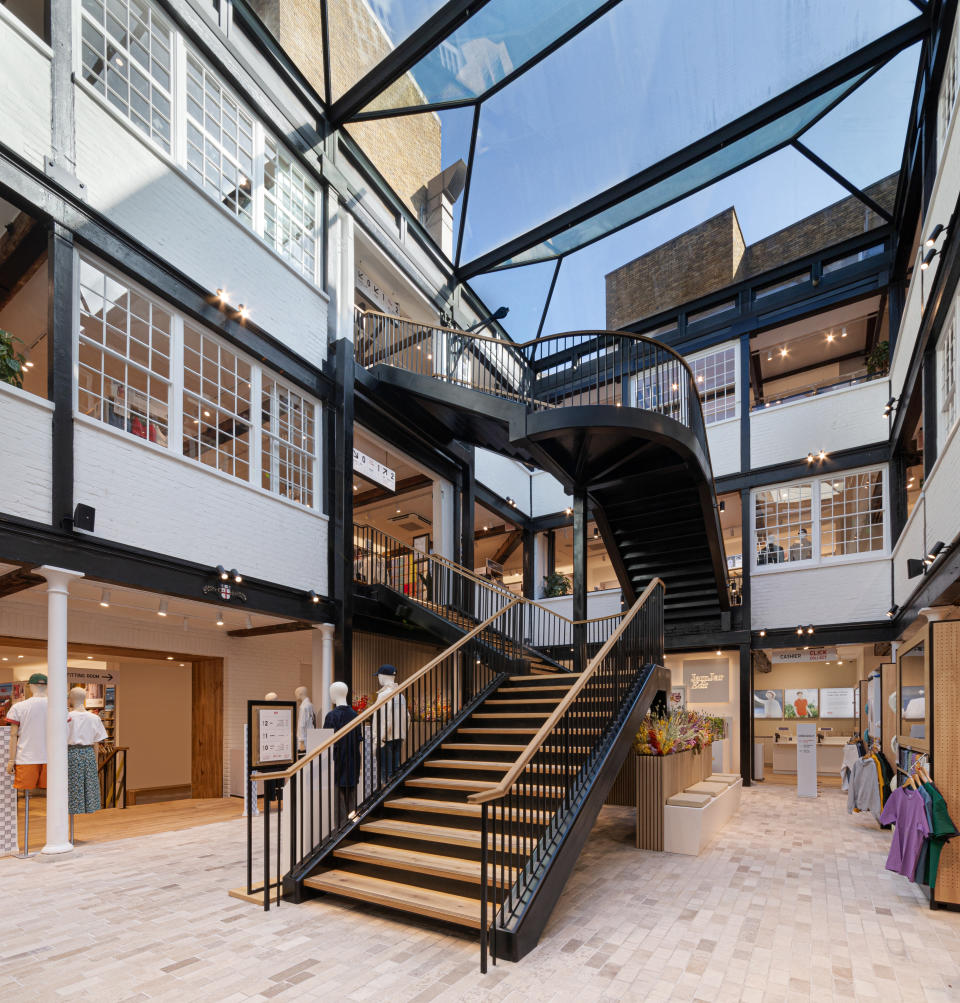
The site was formerly home to the multibrand store Bluebird, and the neighborhood is home to stores including &OtherStories; Tiffany & Co.; Apple; Cos, and the new-format, beauty-focused Boots, which is right across the street.
On the ground floor there are dried flower arrangements, courtesy of London creative studio JamJar, that reflect the springtime colors of the latest collection and recall the neighborhood’s historic flower market.
A collection of linen shirts, in shades of coral, bougainvillea pink, and lavender are exclusive to the store, as are the loose linen-blend trousers.
JW Anderson’s preppy collection of cotton shirtdresses, long V-neck sweater vests and navy blazers is front-and-center, too. That longstanding collaboration sits near a host of charity T-shirts made with artists and brands such as Jean-Michel Basquiat, Keith Haring, Roger Federer, Peanuts and the Dutch illustrator Dick Bruna.
The T-shirts are part of the Uniqlo x Peace for All initiative, which donates all profits to charities UNHCR, Save the Children and Plan International.
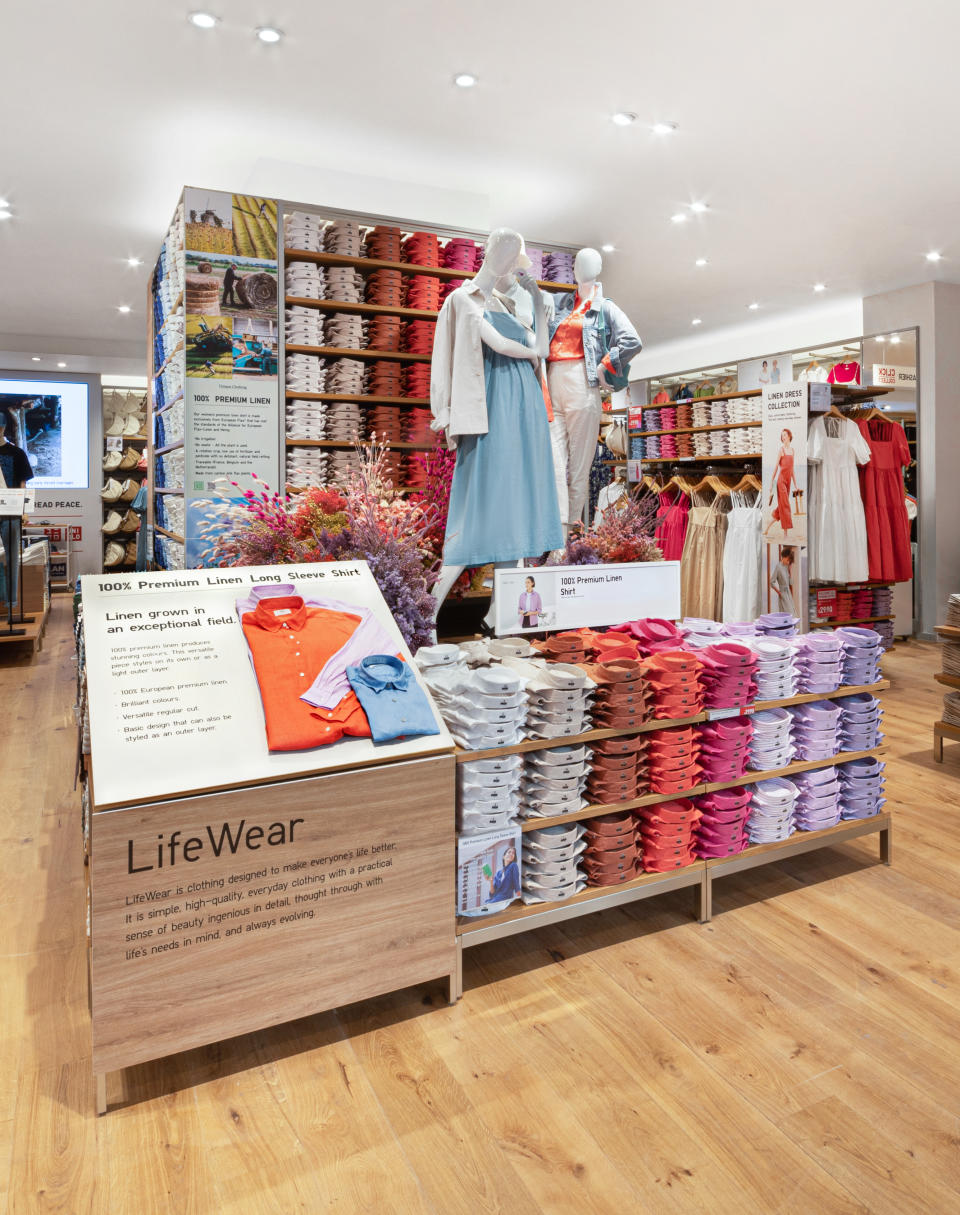
Upstairs, there is a whole area inspired by the archive prints, colors and motifs of the London Underground and the city’s double-decker buses. The space is a nod to the Transport Museum, whcih is a few minutes’ walk from the store.
Benches, stools and chairs have been covered in the brightly patterned, and tough-wearing, London Underground fabric, while customers can play on tablets and create their own T-shirts using archive imagery and logos from the Transport for London archives.
There is also a café, a collaboration with Katsute100, the Japanese boutique and tea rooms, and an area inspired by the imagery from the Covent Garden book and print shop Magma.
Similar to Regent Street, the store has an area for repairs and upcycling, and shares the space with sister brand Theory, which has a separate entrance on Floral Street.
In an interview ahead of Thursday’s opening, Taku Morikawa, chief executive officer of Uniqlo Europe, said it was important for the Covent Garden store to take a different, neighborhood-focused approach.
“We’re looking at a different consumer profile, and we also wanted to show our respect and appreciation for Covent Garden, where there is so much history. We wanted the customer to feel they’re shopping differently here,” he said.
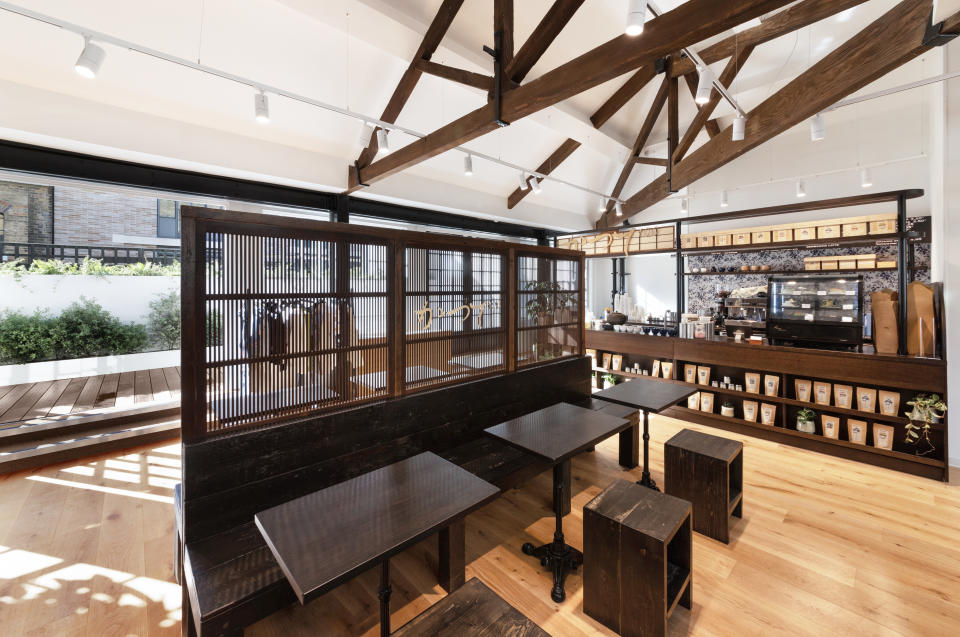
Uniqlo first entered the U.K. in the early 2000s with aggressive plans to expand nationwide, opening stores not only in central London but also in suburbs and smaller cities. But the brand found it difficult to compete against the entrenched U.K. retailers and eventually pulled back on that initial strategy, closing 16 stores, most of which were outside central London.
It has since regrouped and begun to focus primarily on city center units with personality, and higher levels of service.
The landscape has changed dramatically since Uniqlo first broke into the U.K. market, with many nationwide retail chains, such as French Connection, Topshop, Debenhams, Karen Millen and Oasis shutting or being swallowed up by online players, pre- and post-pandemic.
Today’s customer is also savvier, and more cost- and sustainability-conscious.
There are 17 Uniqlo stores in the U.K., 14 of which are in greater London, with the others in Oxford and Manchester.
The Covent Garden store is the 70th Uniqlo unit in Europe, and Morikawa said parent Fast Retailing is always looking for opportunities to open city center flagships.
“If we find a good location, and the customer demographic is there, we open,” said Morikawa, adding that the next flagship to open will be in Luxembourg.
Uniqlo is currently renovating its Paris Opéra store, he said, to provide an “elevated” customer experience. It will open later this year. He said that, nowadays, Uniqlo is thinking as much about “people and concept” as it is about product.
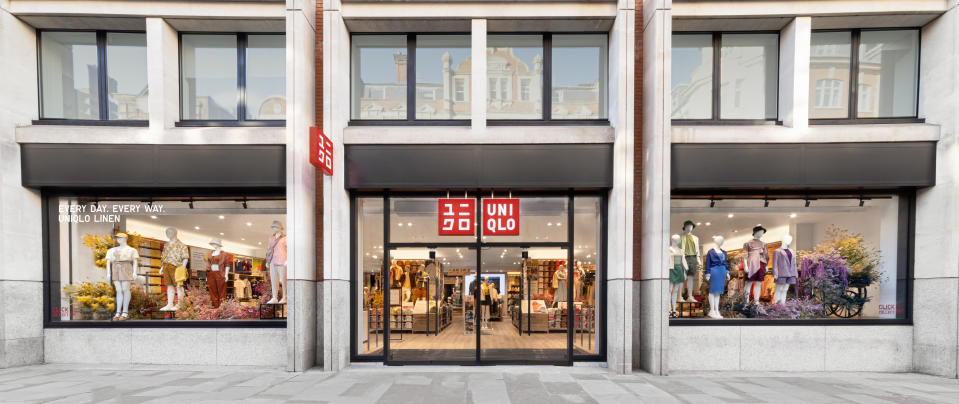
Morikawa said Uniqlo has learned a lot from its customers since the pandemic. “COVID[-19] saw a shift in customer needs and made us realize that we can help, that we can be a solutions-driven company.”
He said Uniqlo is increasingly asking itself questions such as, “How much does this product help? How does it function? What role does it serve? How do we address customers’ needs?”
Uniqlo prides itself on textile innovation and functionality. Morikawa said the company is particularly proud of Heattech, a technology that’s marking its 20th anniversary this year. Heattech clothing provides warmth without added bulk, and the products saw a spike in sales last winter as energy costs rose.
Airism, which allows clothing to wick away sweat, is another example of how Uniqlo wants to use technology to solve everyday challenges.
Prominent in the new Covent Garden store is a display featuring TikTok creator Caitlin Phillimore, who is pictured wearing her Uniqlo crossbody mini shoulder bag and showing the many items that fit into it.
Uniqlo said it’s proud to promote the bag, “which has a purpose” and costs just under 15 pounds.
According to parent Fast Retailing’s latest filing, Uniqlo reported a significant increase in both revenue and profit in the first half of fiscal 2023, with revenue rising 27.3 percent to 755.2 billion yen, or $5.63 billion, and operating profit up 22.2 percent to 122.6 billion yen, or $914 million, at current exchange.
The company said it saw “large increases” in both revenue and profit in Southeast Asia, India, Australia, North America and Europe.
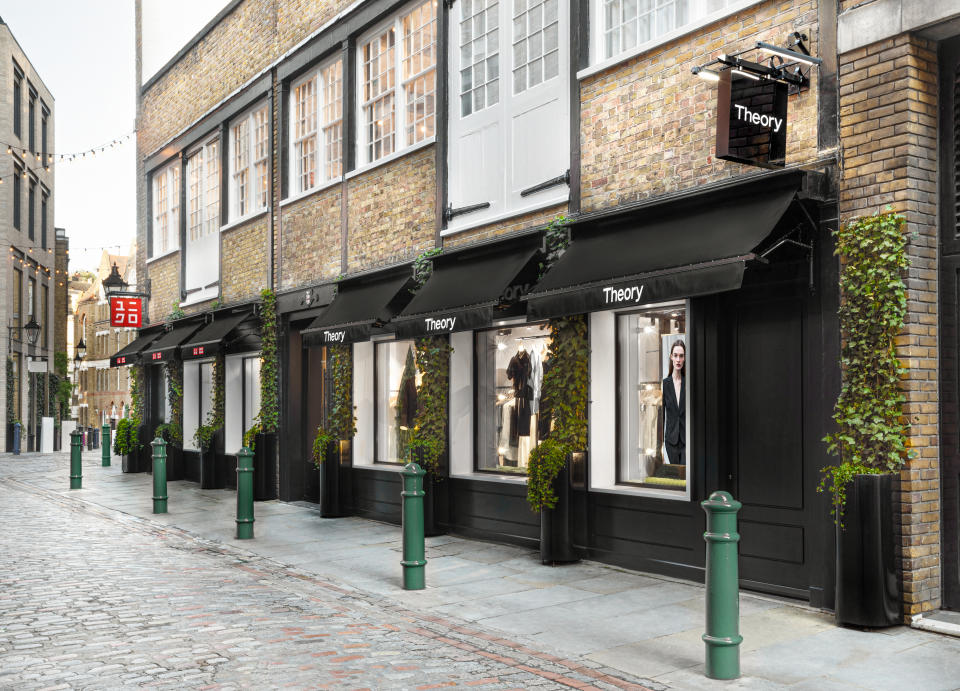
As reported, the company is making a big push in North America, with plans to take its store portfolio from 62 to more than 200 in the U.S. and Canada, part of Fast Retailing’s president Tadashi Yanai’s ambitions to be the largest apparel retailer in the world.
The company is also ramping up its sustainability efforts.
During a roundtable discussion last month at the Regent Street store, Kazumi Yanai, a director and group senior executive officer at Fast Retailing and the chairman of Theory, said Fast Retailing is focusing increasingly on forward planning, shortening lead times, limiting the number of factories it uses, and treating its manufacturers and suppliers more like partners.
“We want to have fewer factories and work more closely with them. It’s about us taking charge of the end-to-end business, and knowing that our responsibilities do not end when we sell our clothing to customers,” he said.
Eventually, Yanai added, he’d like to see Fast Retailing behave like supermarkets which tout the provenance of products such as carrots and milk, advertising the name of the farmer who produced them.
“Our ultimate goal is to have farm-level traceability,” he said.
That will take a while, he admitted, but in the meantime, Fast Retailing has whittled down the number of factories it is working with to around 700 in various regions such as China, Bangladesh, Vietnam and Indonesia.
Fast Retailing has also put systems in place to monitor those factories. Yanai added that Fast Retailing conducts surprise spot checks to keep manufacturing partners on their toes. It has also hired a third-party auditor to check its oversight of the factories.
Another goal at Fast Retailing is to work with 50 percent recycled materials by 2030. The company has been taking steps in that direction by asking customers to return certain clothing, such as used down jackets, and by creating polyester fabrics from plastic bottles.
The company has been making a virtue of returns, flawed or out-of-season products by embellishing them with “sashiko” stitching or adding bits of patterned fabric here and there, with shop floor services that are being rolled out at Uniqlo stores worldwide.
Best of WWD

